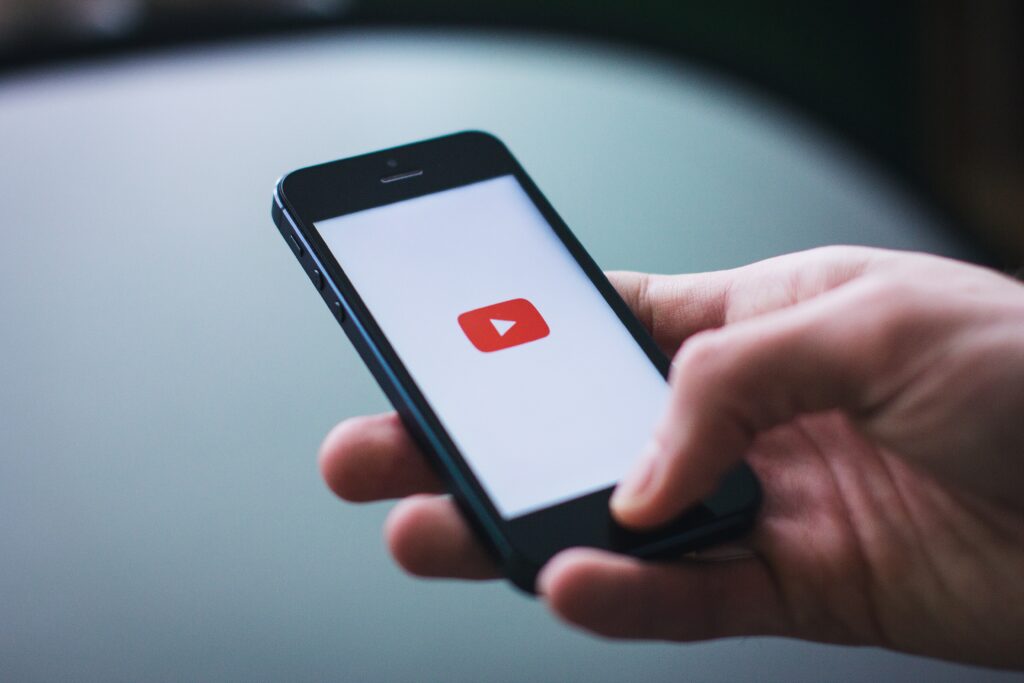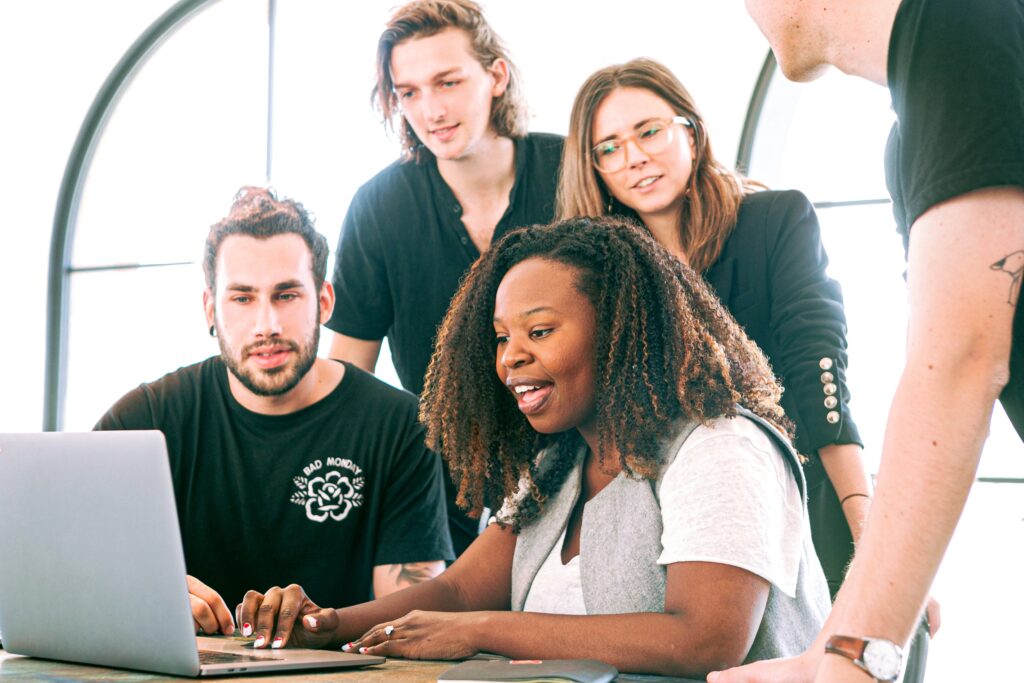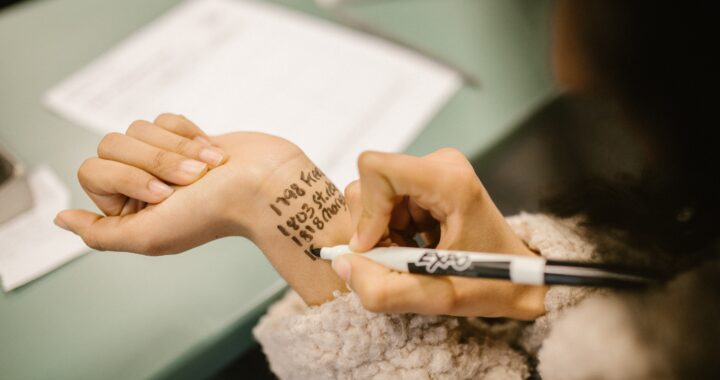Yes, you can be a YouTuber.

I had an interesting interaction with a parent and student a few months back. The student was totally apathetic towards school. His disinterest was reflected in his report card and his mom wanted to have a meeting to discuss getting her child back on track. It was obvious that the student had lost all interest in school and had no desire to be sitting in the principal’s office with his mother. When the meeting stalled, I asked the student a question I often default to in order to change the energy in the room and move the dialogue in a productive direction.
“What do you want to do after high school?”
I could see the student look slightly embarrassed by my question. He looked at mom, then at his feet. Mom met my glance, rolled her eyes and sarcastically answered for her son. “He wants to be a YouTuber.”
I could tell by mom’s body language and her tone of voice, she was confident that I would be in her corner, and the meeting would now take a turn and focus on talking her son out of such a ridiculous career goal.
“A YouTuber!” I exclaimed, trying to make eye-contact with the boy. “That is awesome!”
It was this precise moment that the parent undoubtedly regretted booking a meeting with the school principal.

I have had an increasing number of students express their desire to be professional YouTubers in recent years. For those of us who can remember the world before the Internet, YouTuber might seem a strange career choice. We feel much more comfortable when our students have safer and more traditional career goals–nursing for example. We know how to help students prepare for a career in nursing and we see the immediate value in choosing that profession. I want to argue, however, that there is value to be found in students pursuing such lofty goals as YouTuber and we should not be too fast to dismiss our students when they express such things.
Before we go any further, let me acknowledge certain truths we need to consider when discussing teenagers and the Internet. There is no doubt that creating digital content for platforms such as YouTube comes with a host of concerns. An overuse of technology raises questions around mental health and use of social media has been linked to self-esteem issues, anxiety, and depression. We need to teach our students about digital citizenship and make them aware of cyber safety. And yes, YouTube is full of too many “Baby Shark” videos that waste time while offering nothing of meaningful value. Finally, while some people do make a good living off of YouTube, they are certainly the exception and not the rule.
But there are many reasons why we might want to encourage our students to pursue their interests in creating content for YouTube.
As the world has changed, our jobs as teachers have evolved and the importance of our work has increased. I can’t help but feel, however, that many teachers spend their days focusing on the wrong thing. While teachers once played the role of giving “information” to students, students can now access information on an infinite number of topics from the smart devices in their pockets. We all have access to whatever information we want. It’s a great time to be alive, but it’s also a confusing time to be a teacher as we have been replaced as a source of information delivery. The value of education now lies in helping students develop the skills necessary to thrive in the future workforce.

What skills do we want students to have when they graduate? Do we want them to be creative? Do we want them to be entrepreneurial? Do we want them to be good communicators? Do we want them to be critical thinkers? Do we want them to be confident? Do we want them to understand marketing, digital literacy, and how to create a polished product? Do we want them to be disciplined? Do we want them to be resilient? Do we want them to be independent and motivated workers? Do we want them to feel comfortable using technology?
If we want to prepare students for tomorrow, we can’t cling to the curriculum and the teaching practices of yesterday.
The answer, of course, is yes. We want graduating students to possess all of these skills. While we cannot predict with certainty what the workforce of the future will look like, we can feel certain that these skills and these characteristics will continue to be in demand and will not go out of style.
Here is an interesting point to consider. It is possible that a student that is at the top of her class and excelling in all of her studies is not developing any of the real world skills listed above. Conversely, a student who is running their own YouTube channel while ignoring their studies, is working on all of these skills and more on a regular basis. If I was running a business and given the choice of hiring a student who graduated the top of her class or a student who was running their own YouTube channel, who would I choose? While we have been conditioned to think the student with the highest marks might be the best choice, the reality is, this might not actually be the case.
The students who I know that have their own YouTube channels show skills and passion in their work that is rarely present in schools. Their YouTube channels give them the ability and the platform to explore whatever interests them, whether it be videogames or politics. These students are able to find their voices, test their ideas out in a real world setting while collaborating, interacting and learning from others who share a similar interest. I want learning to look like this in my school. Maybe we need to make our lessons similar to the experience of running a YouTube channel.
Like it or not, YouTube is not going anywhere and is becoming an increasingly important medium in our world. Today one billion videos are watched every day on the platform and five hundred videos are uploaded every minute. For teachers, YouTube is one of the most used resources when it comes to developing lesson plans. Why would we not encourage students to engage and create in this space?
As mentioned above, there are many downfalls to YouTube and social media. These are obstacles a student is going to have to negotiate at some point in their life as they learn to thrive in an increasingly complex online world that is here to stay. Preparing kids to understand and cope with that digital world at an early age is absolutely necessary. The sooner we do it, the better that student will be served in the long run.
Let me go back to that mom in my office for just a second. No doubt, she was hoping for me to buckle down on the kind of traditional learning that she had experienced while a student herself. Practice your math. Memorize your terms. Review your notes. Study for the test. While that parent, like many parents, had the best of intentions for her son, she wanted to give her son the same experience as a student that she had when she graduated high school fifteen or twenty years ago.
If we want to prepare students for tomorrow, we can’t cling to the curriculum and the teaching practices of yesterday. We need to consider how new technologies and new platforms can provide ways for students to learn, engage the world, and carve our their own niche in society.
So yes, you can be a YouTuber.




